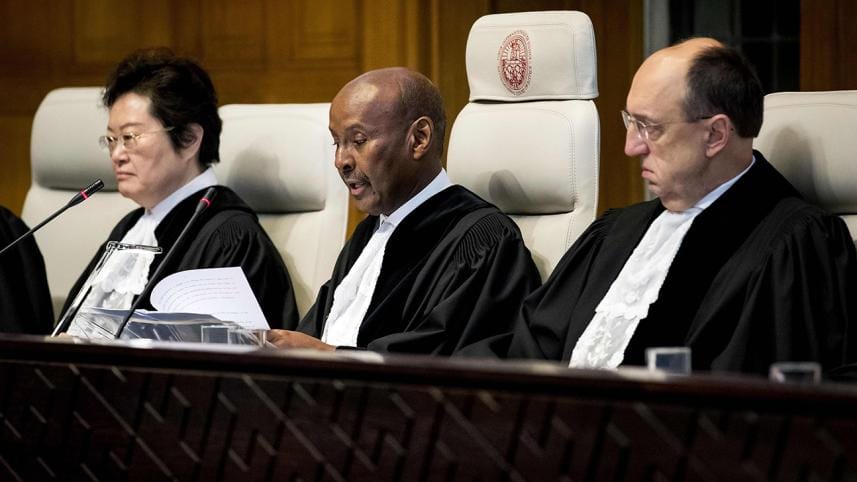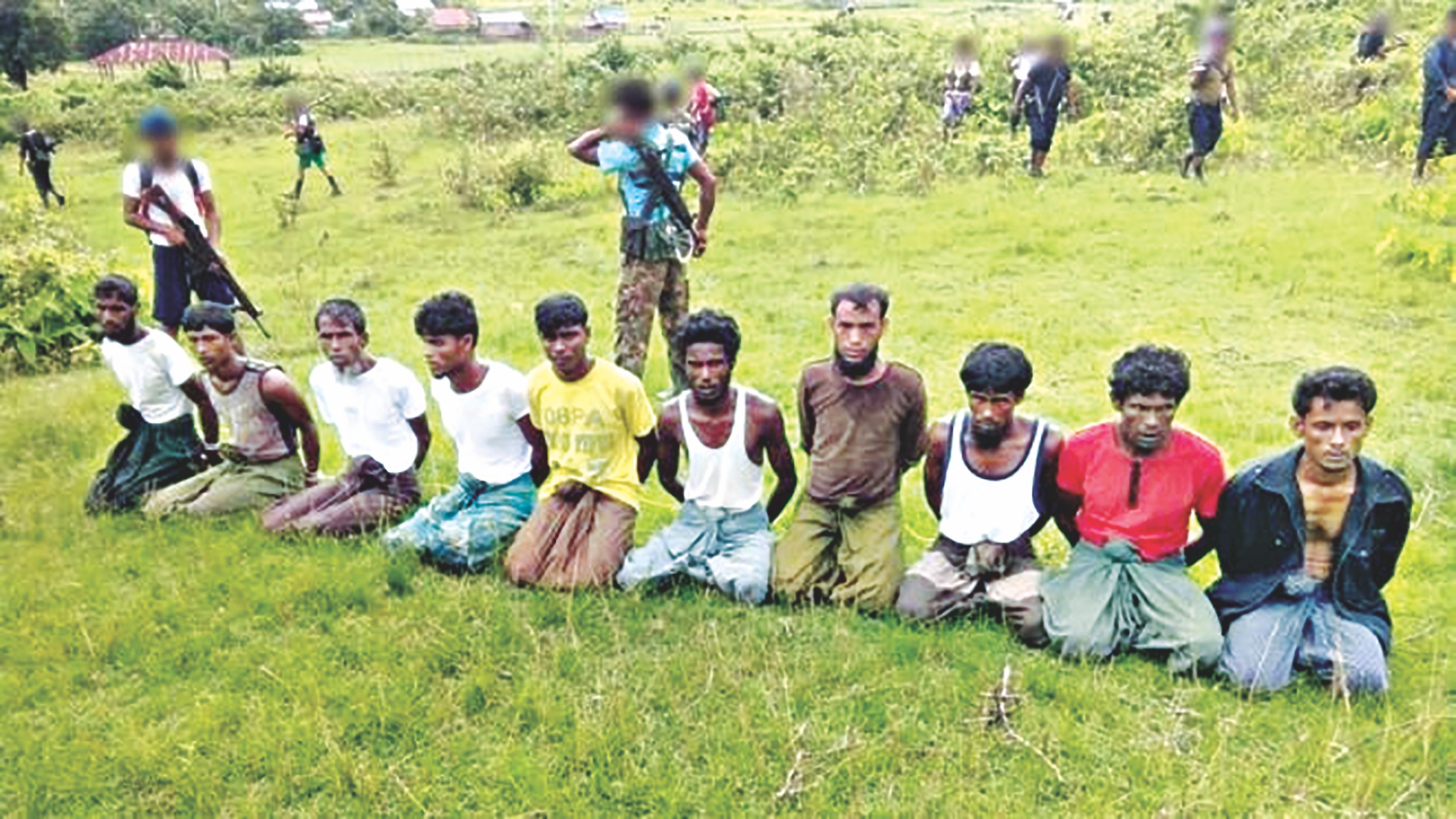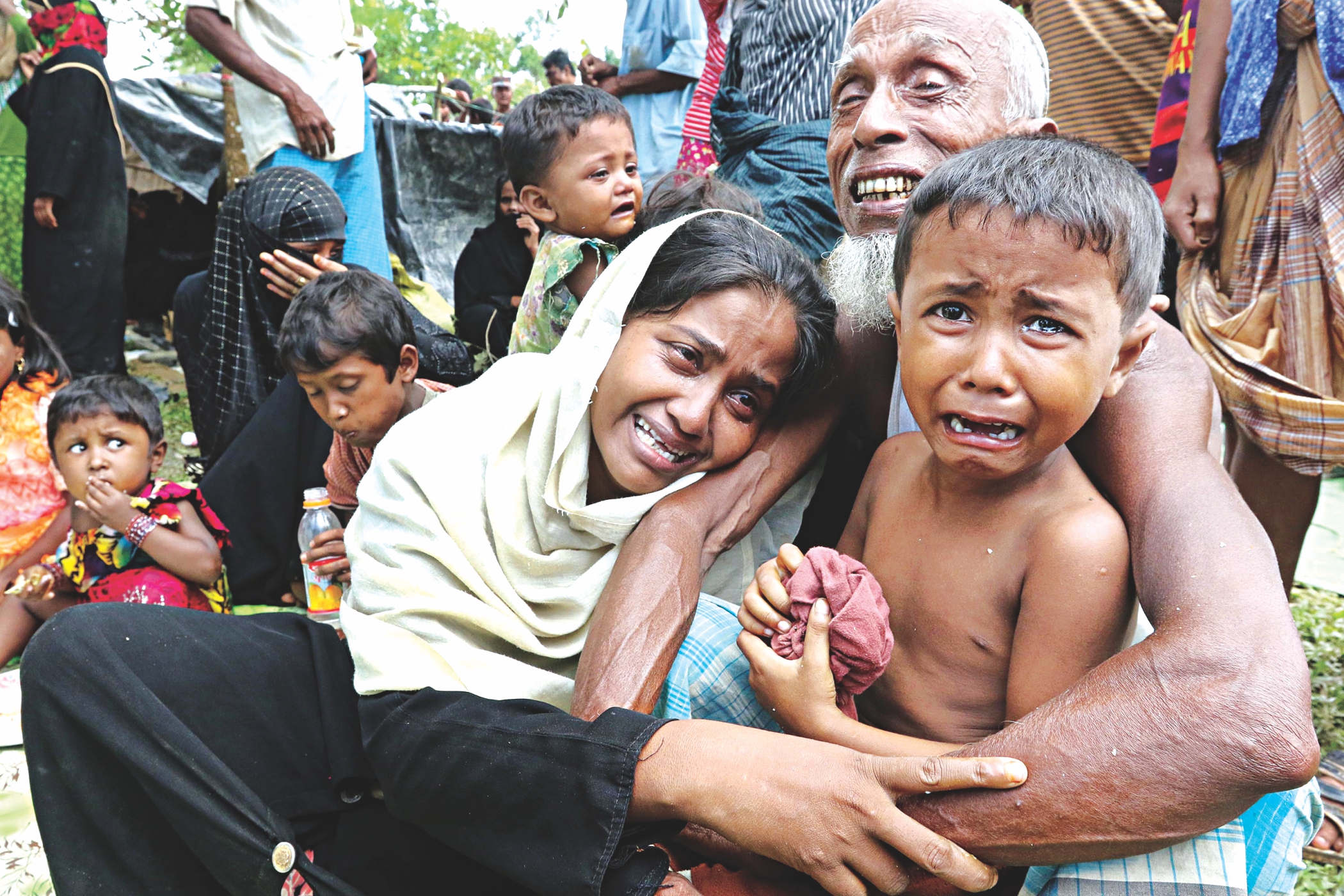Genocide still going on: Gambia to UN court

Payam Akhavan, a lawyer for The Gambia, today told the International Court of Justice that the Rohingya genocide is still going on in Myanmar.
"The genocide is still going on unabated, Akhavan, an international lawyer and professor at McGill University in Montreal, said calling upon the ICJ to stop the genocide immediately.
Akhavan, who has served as legal counsel in cases before the ICJ, the International Criminal Court, the European Court of Human Rights, and the Supreme Courts of Canada and the United States, was presenting his arguments before the UN's highest court this afternoon (Bangladesh time).
"They (Rohingyas) are under the serious need of protection," Akhavan said told the ICJ this afternoon (Bangladesh time).
A 15-member panel of judges of the International Court of Justice (ICJ) began the hearing 2:55 pm (Bangladesh time) at the Peace Palace in The Hague on the lawsuit filed by the Gambia against Myanmar on November 11.
The African country, on behalf of the 57-member Organisation of Islamic Conference (OIC), had filed the lawsuit accusing it of violating the UN Genocide Convention.
The ICJ was hearing Gambia Attorney General and Justice Minister Abubacarr Marie Tambadou when the report was filed around 3:20 pm.
The Gambia will deliver from 2:55 pm to 4:25 pm, while Myanmar will deliver its observations from 9:25 pm to 10:55 pm (Bangladesh time).
A delegation led by Myanmar leader Aung San Suu Kyi, who once held her under house arrest, is set to defend the genocide allegations.
The ICJ will streamed live in English and French on the Court's website – www.icj-cij.org/en/multimedia-index -- as well as UN Web TV.
In the lawsuit, Gambia is seeking provisional measures to protect the Rohingya from further violence in Rakhine. The move came more than two years after some 7,50,000 Rohingyas fled a brutal military campaign in Rakhine and took shelter in Bangladesh.
Myanmar State Counsellor Aung San Suu Kyi, who is leading the lawyers on behalf of Myanmar, will deliver on behalf of her country accused of genocide against the Rohingya tomorrow.
The hearing will be held from 2:55 pm to 5:55 pm today and tomorrow. The second round of oral observations will be held on Thursday.
The court can issue such orders to protect the rights of the parties to a case pending the final decision to avoid irreparable damage to the rights of the subject of the case.
"Lawyers will also ask the judges of the top UN court to issue orders so that Myanmar does not destroy any evidence of massacres that happened in 2016 and 2017 in Myanmar's Rakhine state.
The Gambia in its lawsuit said the Rohingyas were facing longstanding persecution and discrimination. From around October 2016, Myanmar military and other security forces began widespread and systematic "clearance operations" against the group.
"The genocidal acts were intended to destroy the Rohingya as a group, in whole or in part, by the use of mass murder, rape and other forms of sexual violence, as well as the systematic destruction by fire of their villages, often with inhabitants locked inside burning houses," it said.
From August 2017 onwards, such genocidal acts continued with Myanmar's resumption of "clearance operations" on a more massive and wider geographical scale. These facts are extensively documented by UN independent investigators and corroborated by international rights organisations, the lawsuit said.
Myanmar denies allegations of genocide, saying its army was fighting militants who attacked security posts. Nobel laureate Suu Kyi, whose image was tarnished for not doing enough to prevent Rohingya genocide, will try to defend Myanmar at the ICJ.
Rohingya activists say several hundred Myanmar nationals are likely to be present in The Hague to demonstrate their support for Myanmar.



 For all latest news, follow The Daily Star's Google News channel.
For all latest news, follow The Daily Star's Google News channel. 

Comments